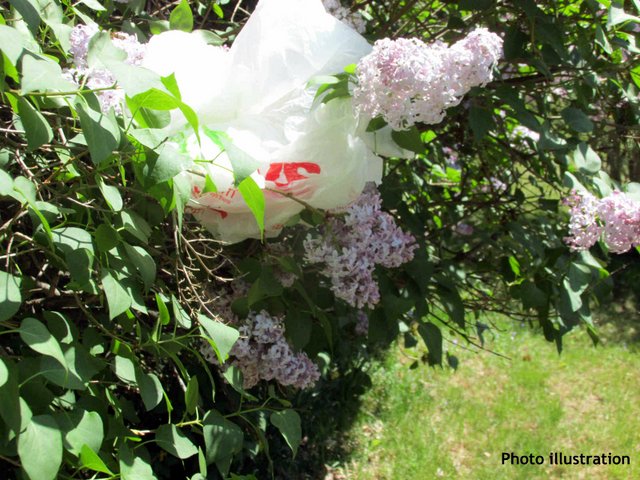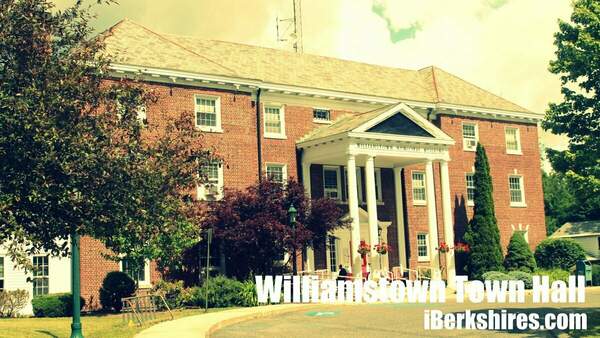Williamstown Bag Bylaw Advocates Want Town Meeting Decision
 A petition will ask town meeting to ban the use of plastic bags. A petition will ask town meeting to ban the use of plastic bags. |
WILLIAMSTOWN, Mass. — Proponents of bylaws to ban single-use plastic bags and polystyrene containers say it is time to make a stand, not a study.
The town will decide at Tuesday's annual town meeting whether to enact two bylaws generated by citizens' petitions.
The Board of Selectmen recommends that the bylaws be reshaped over the next year.
Brad Verter, one of the organizers of the citizen-driven bylaw effort, is having none of that.
"There is zero point in tabling it," Verter said shortly after the board's vote. "Each of their concerns is very easily addressed.
"They're worried about the legality and enforceability of things, but from my perspective, that's a non-issue. There's nothing in there that hasn't already been approved by the attorney general's office elsewhere in Massachusetts."
The proposed bylaws come near the end of the annual town meeting warrant, which also includes, in addition to the usual spending measures, a solar bylaw amendment generated by the Planning Board, three bylaw amendments designed to ease restrictions on the use of commercial signage in town and a citizen-sponsored resolution opposing the Northeast Energy Direct (Kinder Morgan) natural gas pipeline.
The Board of Selectmen unanimously recommended adoption of the pipeline resolution by town meeting, although it balked at the idea of making that decision for the town.
When it came to the bans on plastic bags and polystyrene, each of the selectmen present during an
April 13 discussion of the bylaws praised their goal and a motion passed by the panel emphasizes that point, reading, in part, "We, the Board of Selectmen, endorse the goal and intent of [Articles 41 and 42]."
But individual members questioned the enforcement mechanisms in each proposed bylaw. Specifically on the single-use plastic bag bylaw, for example, they questioned the provision requiring stores that offer "a recyclable paper bag, a compostable bag or a marine degradable plastic bag" to charge customers 10 cents per bag.
Selectmen wondered whether it made more sense to allow store owners to absorb that cost rather than penalize customers who forget to bring enough reusable canvas bags on a shopping trip.
But part of the bylaw's intent is to change consumer behavior.
"Letting the owner decide that would defeat the purpose of the bylaw," Verter said. "Every business owner is going to feel obliged to offer free bags and absorb that cost."
Selectmen and others also have wondered whether it makes sense for Williamstown to go it alone and ban single-use plastic bags when A) there are not that many businesses in town that dispense them and B) a bylaw would place those businesses that do dispense them at a competitive disadvantage.
Bylaw critics suggest it might make sense to wait until the commonwealth of Massachusetts bans the materials. That way Williamstown businesses would be on an equal footing with businesses in neighboring communities.
Verter said he talked with the manager of the Cumberland Farms in Williamstown and was told that the store would have no problem adjusting to such a local bylaw, as the chain's store in Great Barrington did under a similar bylaw.
When reached for comment, the manager of the Williamstown store referred all inquiries to the corporate office. A request to a company spokesperson for comment on either the Williamstown proposal or Great Barrington bylaw was unreturned.
Proponents of the Williamstown bylaw also maintain that local bylaws in towns like Great Barrington and Williamstown advance the cause of a statewide ban on the polluting, nonbiodegradable materials.
Rep. Gailanne Cariddi, D-North Adams, a co-sponsor on the House version of a proposed statewide ban, agreed.
"A groundswell of support around the commonwealth in instances like Williamstown's proposal would certainly help to move the issue forward," Cariddi said.
Cariddi said the statewide ban makes sense not only because of its benefit to the economy but also because it would help a Bay State manufacturer of alternatives to single-use plastic bags.
"My opinion is if there are acceptable alternatives, [businesses] should use those alternatives in all of their locations and not just in the communities that are regulating it," Cariddi said in a telephone interview. "I specifically recall a manufacturer in the eastern part of the state who showed us what looked like your average regular plastic supermarket bag, but his bag would deteriorate in 10 days or less.
"There are alternatives out there and alternatives that will help the commonwealth produce jobs."
The Board of Selectmen's suggestion that the town take a year to "review" the proposed bylaws is reminiscent of the last time a potentially controversial issue was due to be decided by town meeting. That was the
2013 special town meeting at which town voters arrived expecting to decide the possibility of developing two town-owned properties for use as affordable housing.
In April 2013, the Board of Selectmen endorsed the idea of a "timeout" that was adopted by the special town meeting. The intention was to allow the town time to study that issue.
A month later, the board created a committee comprising the heads of various town boards and committees. The stated goal was to coordinate dialogue among those committees and make recommendations to the Selectmen about whether it made sense to look at the Lowry or Burbank properties for housing.
In fact, the "super committee," which became known as the Spruces Roof Group, essentially disbanded without ever really addressing the Lowry/Burbank question, much less making a recommendation to the Selectmen.
The only town committee that ever did address the disputed properties is the town's Conservation Commission, which created a nonbinding legal opinion that the properties are both covered by Article 97 of the Massachusetts Constitution and essentially off-limits to developers.
Proponents of the plastic bag and polystyrene bylaws would not want to see a similar outcome from a "timeout" at this year's annual town meeting.
"We could be leaders, or we could drag our feet and not do anything until the state makes us," Verter said.
Williamstown's Annual Town Meeting is scheduled for Tuesday, May 19, at 7 p.m. at Williamstown Elementary School.
Tags: bag ban, plastics, town meeting 2015,
 A petition will ask town meeting to ban the use of plastic bags.
A petition will ask town meeting to ban the use of plastic bags.














